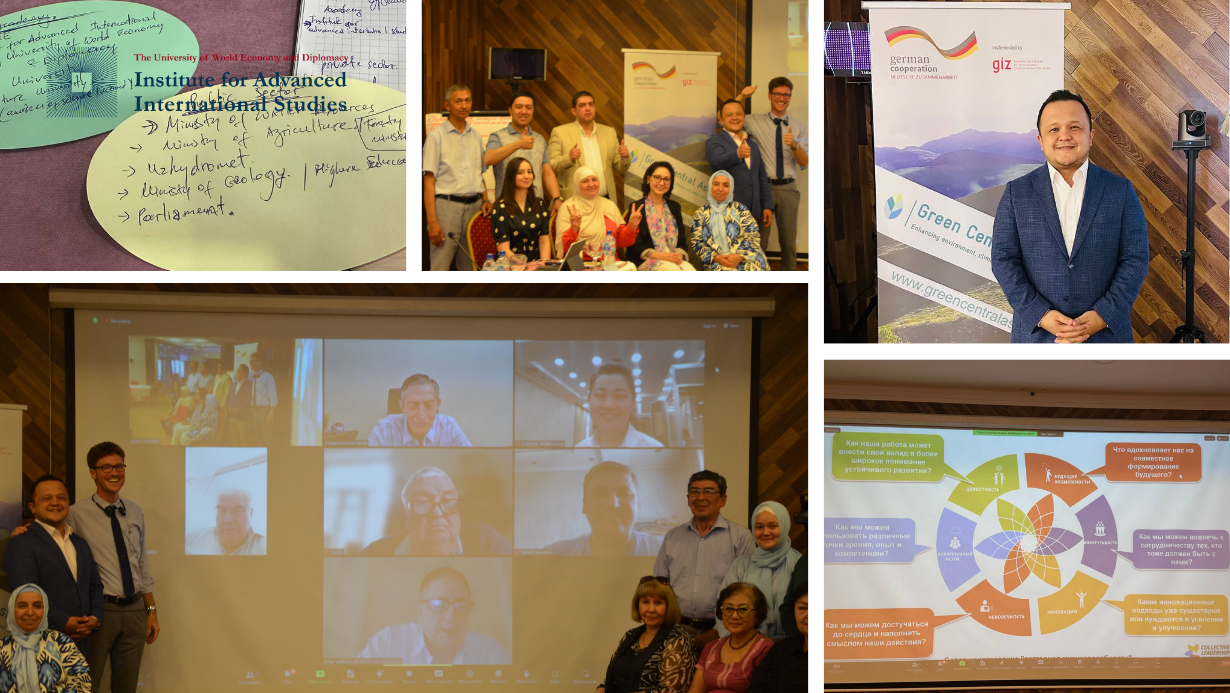
Tashkent, Uzbekistan – On May 2024, the Multilateral Country Dialogue on Joint Implementation of the Regional Climate Change Adaptation Strategy in Central Asia (RCCAS CA) convened in Tashkent, drawing together key stakeholders from diverse sectors such as civil society, academia and government agencies of Uzbekistan. Organized by the Collective Leadership Institute (CLI), and supported by GIZ, and the event provided a platform for robust discussions and collaborations aimed at addressing the pressing challenges of climate change adaptation. Mr. Shakhboz Akhmedov, Head of the Center for Sustainable Development at the Institute for Advanced International Studies, participated in the event, underscoring the importance of collaborative efforts among stakeholders at both national and regional levels. He emphasized the overarching significance of climate issues, which traverse institutional, sectoral, and international domains. Hence, the dialogue focused on identifying key challenges and opportunities for climate change adaptation in the region, highlighting the imperative for enhanced collaboration among Central Asian nations. Participants exchanged insights on existing research and initiatives, emphasizing the integration of these efforts within a cohesive regional strategy.
The event functioned as a crucial forum for exchanging knowledge and experiences, setting the stage for strategic endeavors aimed at addressing climate change adaptation in Central Asia. In the event's conclusion, participants delved into an analysis of multistakeholder climate cooperation in Uzbekistan, utilizing the CLI's analytical framework, the Compass, to better grasp the inherent challenges.
Hence, a cornerstone of the dialogue was the sharing of best practices, experiences, and strategies to enhance the effectiveness of adaptation measures. As the discussions concluded, participants were invited to a follow-up multilateral regional dialogue, scheduled to be held in a hybrid format later this month. This continued engagement aims to foster deeper inter-country cooperation and advance the implementation and refinement of the RCCAS CA on a broader regional scale.